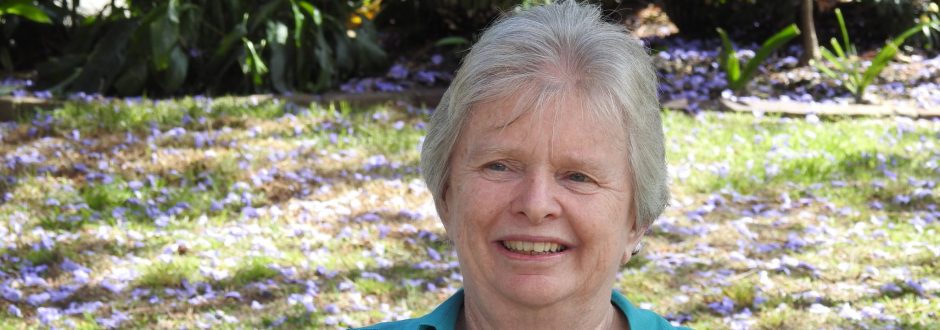Listening with the ear of the heart can be a scary experience because it can call me to radical change, to a transformation of my limited human perspective, writes Good Samaritan Sister Clare Condon.
BY Clare Condon SGS
I am writing from Rome, the eternal city, as I attend the four-yearly Symposium of the International Communion of Benedictine Women (CIB). This worldwide communion is represented this year by 120 delegates from every continent. What a rich experience it is of the living tradition of Benedictine life across the Church and various cultures.
The theme of this gathering is “Listen with the ear of the heart”, the opening words of the Rule of St Benedict. I ask myself, what does it mean to listen from the heart? Does it make any difference to listen in this way? By listening in this way, I hear not just words, but I find a place of feeling and of meaning within the depths of my inner being. I also listen with the intellect, from the place of my true identity.
To listen with the heart doesn’t come easily. It is a difficult and challenging journey. I need to empty my heart of my own agenda, of all that clutters my life and my survival: to empty my heart of my own assumptions and prejudices; to empty my mind of all the preconceived answers and solutions I might conjure up. This is a place of inner openness to receive the other, the word, whether that be the Word of Scripture, the word of a confrere, the cry of despair, or the hope of forgiveness and reconciliation. That inner openness is what the desert fathers and mothers called “purity of heart”.
Listening with the ear of the heart can be a scary experience because it can call me to radical change, to a transformation of my limited human perspective. This is not simply a change in my opinion or even in my ideological stance, but a much deeper change in my attitude, a real change in my way of being and doing.
In her opening address of the symposium, Sister Judith Heble OSB, Moderator of the CIB, quoted a Native American Proverb: “Listen or your tongue will make you deaf”. What a lesson to learn! It is worth reflecting on this maxim. How deaf am I because I only hear my own voice, my own ideas? If each of us could take the time to truly listen to one another, our prejudices might fall away, our mistrust might disintegrate, and our fear might be replaced by confidence and compassion.
Benedict, in his Rule, expects us to be constantly listening: to one another in the community; to the community leader (the abbot); to the guests; to the sick; and most of all, to God in the Scriptures at communal prayer and in personal lectio and prayer.
Perhaps if world leaders and others in authority stopped talking in slogans and began to listen to the fearful cries of those suffering from war-torn regimes, to the anguish of the poor and the hungry, to the desperation of those seeking asylum and refuge, or to the feeble whispers of those with incurable diseases, then our world might change: peace might replace war; the hungry might receive food and nourishment; the refugee might find safety and security; and the sick might be healed and made whole.
Here at the symposium, I have been deeply affected by what the sisters from the Ukraine have shared with us. Listening to the pain, the suffering and the desperate poverty of the ordinary people of this country at war, has given me a much deeper insight into the futility and destructive nature of this struggle for power and dominance. If only those seeking the power and those in power could pause and truly listen to the aspirations and deep desires of one other, they might just find peace.
“To listen with the ear of the heart”, the opening words of the Rule of St Benedict, instruct those of us who seek to follow Benedict’s way, to continue to grow into this way of being, “lest our tongues make us deaf”.
Some years ago, the twentieth-century Scottish philosopher, Alasdair MacIntyre, said that the world needed a new Benedict. Perhaps our challenge is to rediscover the importance of listening to one another in a deeper way. We then might become the new ‘Benedicts’ for our time and our place.
